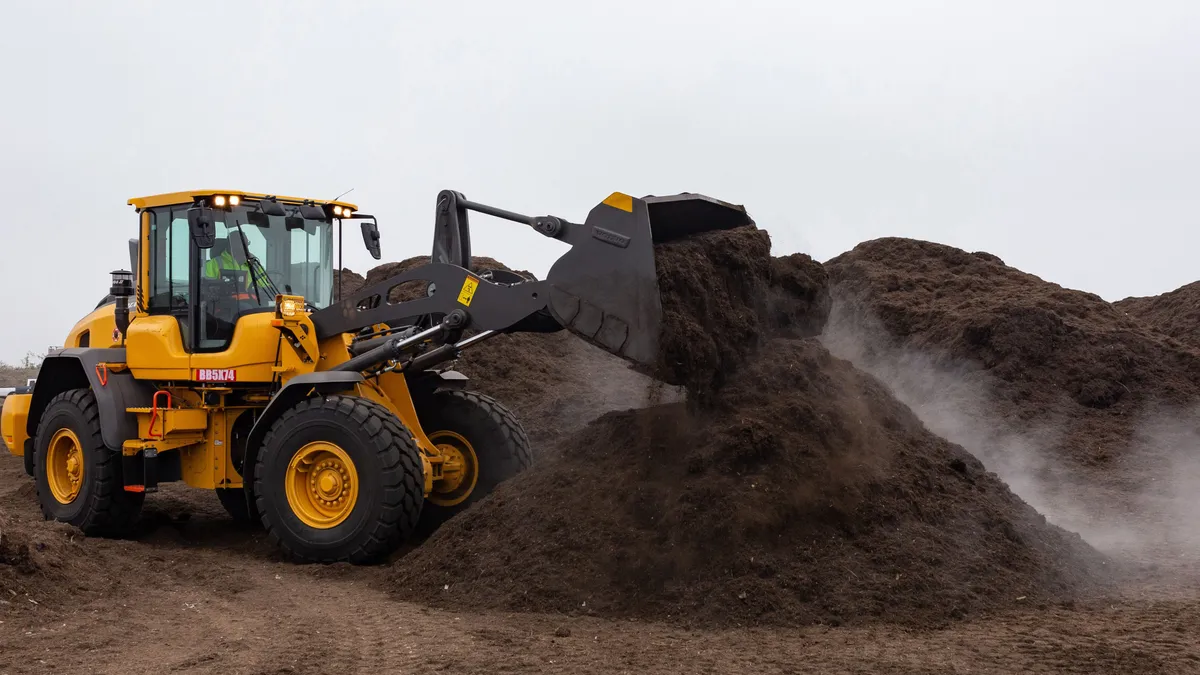Nearly seven years after its passage, municipalities across California are working to get in compliance with SB 1383. The law set an ambitious target to reduce organic waste disposal 75% by 2025.
The pandemic delayed the law’s implementation. After it took effect in 2022, 126 cities and counties have asked for more time for implementation, the Los Angeles Times reported. Below are three developments that may bring jurisdictions closer to meeting their targets.
Agromin
Organics waste recycler Agromin announced a pair of partnerships this summer to help jurisdictions comply with SB 1383 requirements. The company launched a free compost and mulch giveaway program in Ventura in July. The program allows residents to order the products for pickup and delivery through Agromin’s website. The company then reports data to the city for compliance.
Agromin also received a permit from Merced County to expand a composting facility from 25,000 tons of green waste to 100,000 tons of annual green waste capacity. The Agromin-Merced Highway 59 Compost Facility began operation in July and expects to add food scraps, but it will not add biosolids or chemical fertilizers. The cities of Merced and Atwater, as well as unincorporated parts of Merced County, are expected to contribute to the facility.
True North
True North Renewable Energy received a conditional use permit to operate an anaerobic digestion facility in Kern County, the company announced last week. The facility would process up to 300,000 tons of organic waste per year into renewable natural gas. Accepted feedstock includes commingled industrial and residential food scraps, organic scraps removed from municipal solid waste, yard trimmings, green waste, compostable material and more.
In addition to its Kern County location, True North also touts planned facilities in Imperial County, California, and Yuma County, Arizona. True North expects construction to start at the Kern County facility next year and operations to begin by 2027.
AB 573
A bill in the California legislature, backed by haulers, would allow municipalities to ship organic waste to an out-of-state facility and procure the end product to comply with existing laws. Jurisdictions must procure a certain amount of such products per year, calculated by multiplying 0.08 tons of organic waste per resident by the recovered organic waste product conversion factor set out in state code, according to CalRecycle. San Francisco’s procurement target, for instance, is just over 70,000 tons of organic waste annually.
Products included in the requirement include compost, mulch, electricity and fuels derived from organic waste. The bill, AB 573, would sunset in 2031. In comments, Assemblymember Eduardo Garcia said the bill would ease the challenges jurisdictions face in meeting SB 1383 targets while reducing vehicle miles traveled to source organic products that meet the procurement target. The bill passed the House, but the California Senate appropriations committee put the bill on its suspense file on August 14 to analyze its fiscal impact. It’s next scheduled for a hearing on September 1.















